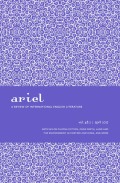Close Reading, Teaching the Conflicts: Reading Reflectively in Korea
Keywords:
Close Reading, English Literature, Liberal Arts, Globalization, PostcolonialismAbstract
Teaching in a liberal arts college in Seoul, my most striking realization has been the need to teach students close reading. The difficulty they find in performing detail-oriented textual analysis is, in part, a product of their prior literature learning, which is significantly inflected by colonial history; their resistance to the method, moreover, can be traced to issues of neoliberalism and globalization, most concretely in the mismatch they perceive between “liberal learning” and the society and job market awaiting them. To enable students to determine for themselves the value of close reading, I argue, they need to be trained to reflect on their modes of reading. My most sustained effort in this regard has been a seminar called “Literature and Pedagogy,” inspired by Gerald Graff’s call for “teaching the conflicts.” In focusing on the critical debates that have shaped the discipline of English, most students gain significant appreciation for the virtues of active and reflective learning, while adopting a more critical stance vis-à-vis their prior literature learning and the university itself. Such a metacritical approach to English does not resolve the tensions impacting their educational lives, but it does give them the capacity to more critically and reflectively negotiate them.Downloads
Additional Files
Published
2017-05-15
Issue
Section
Global Pedagogy


